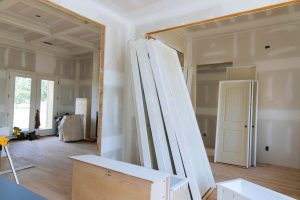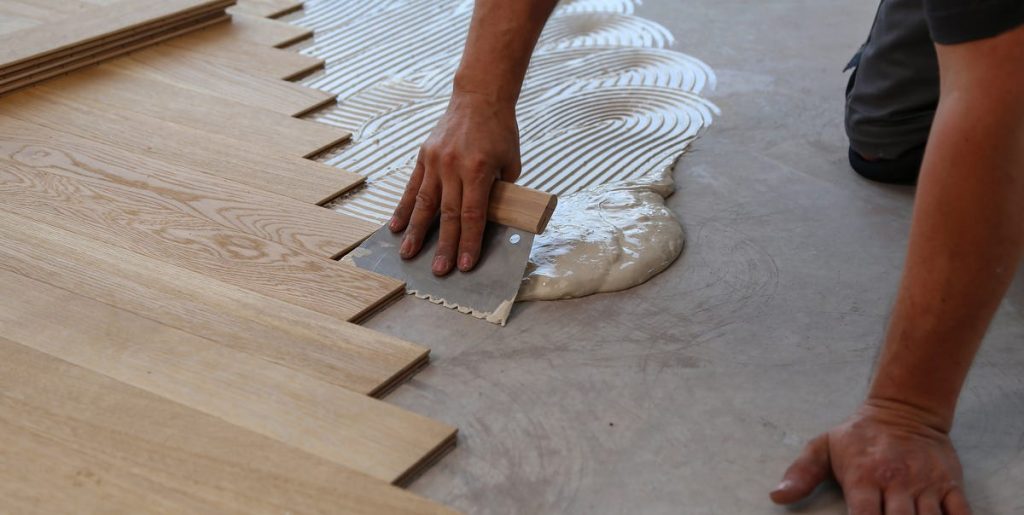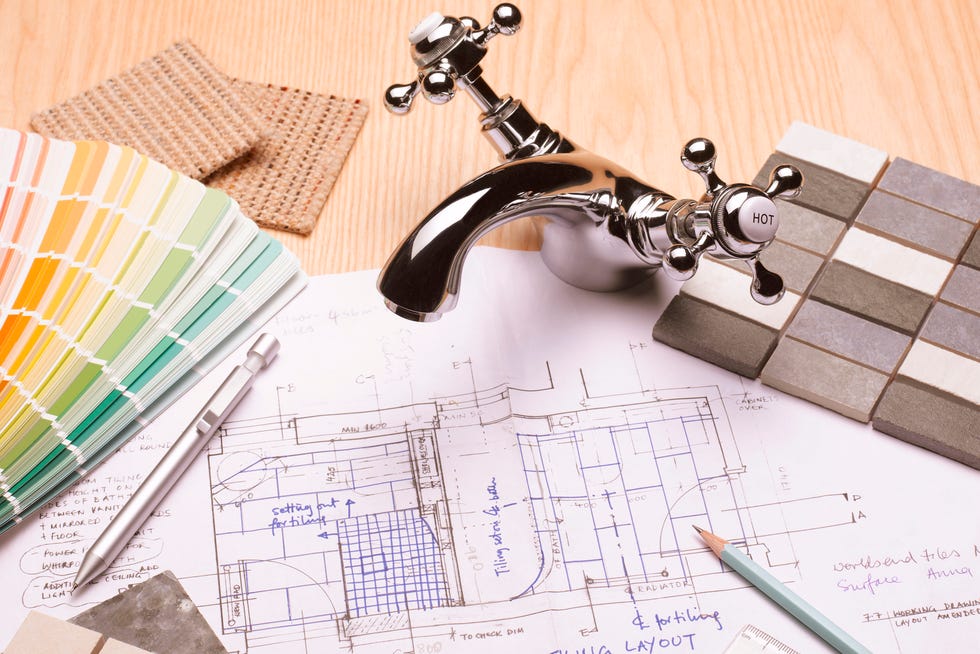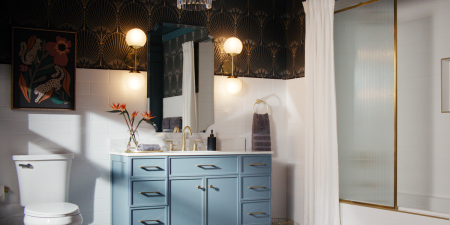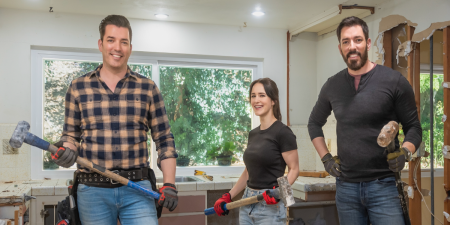Regardless of the project’s scale, home renovating can spark a mix of emotions. While you’re probably thrilled about taking the next steps towards designing your dream home, you’re also most likely a bit overwhelmed by the thought of transforming your house into a construction site for the next few weeks or months. And to top it all off, you’re forced to put all your trust in someone you may not know very well: Your contractor.
While contractors don’t usually intend to mislead their clients in any way, there are a few unspoken truths that are helpful to understand before you finalize any home projects. Dan DiClerico, director of the Good Housekeeping Institute Home Improvement & Outdoor Lab, has rounded up the most common truths contractors may not explicitly tell you before renovating. This way, you can better prepare for the project to come.
Remodeling almost always takes longer and costs more than expected.
Any changes in the price or timeline of your remodel can be frustrating, especially when you’ve budgeted a certain amount of money and have carefully planned for the project to be done before a specific deadline. However, there are certain things beyond you and your contractor’s control that can change the original plan.
“Your contractor might truly believe they can finish the job in three months or six months. But then they’ll run into hidden surprises, like structural damage behind walls or outdated electricals,” says DiClerico. “Fixing those issues takes time and money. That’s why it’s important to build at least a 20% cushion into your budget and timeframe.”
Rather than having it come as a surprise weeks after signing your contract, plan ahead by building in that extra time and money into your budget. Understanding the process beforehand and coming prepared can help you avoid future frustration.
It’s your right to change the design plan — but it will cost you.
It can be exciting to actually see the progress of your renovation unfolding in front of you. As you begin to experience the transformation, other ideas might come to mind. While you have every right to express your opinions throughout the project, there are always costs that come along with those changes.
“There’s a saying in the business that the four most expensive words in remodeling are ‘while we’re at it.’ It’s tempting to make changes to the design plan after the work gets underway — adding in another window, maybe, once a wall is knocked down during demo, or squeezing extra pantry space into the kitchen floor plan,” says DiClerico. “It’s your right to do this, but you need to know that it will add significantly to the bottom line, and in the heat of the project, your contractor might not do the best job of explaining the numbers.”
If you’ve asked to tack on an extra project, regardless of how minor, be patient with your contractor when it comes to pricing and scheduling.
Given the choice, contractors will usually go for the ‘builder’s special.’
Your home project should be all yours — paint, tiling, flooring and all. If you don’t specify the materials you’d like your contractor to use, they’ll likely choose for you.
“If you let your general contractor choose all the products and materials on the project, they’re usually going to go for the cheapest, fastest option. Take interior paint, for example. They’ll choose an economy brand that goes on quick and dries fast. Things like long-term durability and fade-resistance are less of a concern. As our testing at the Good Housekeeping Institute finds, you can find affordable paints that also deliver a smooth finish and perform well over time. The same rule applies to most product categories, from flooring to decking,” says DiClerico.
So before signing a written contract, it’s important to make sure all products and materials down to the model number and choice of finish are clearly stated.
“Any blank spaces in the contract will probably be filled in by your contractor, and that’s where you could end up with a lot of ‘builder’s specials’,” says DiClerico.
It will be messy.
When it comes to renovating, messiness is a side effect of hard work. However, that doesn’t mean it should infiltrate the whole house. Make sure to communicate with your contractor before the project starts so you have a plan for containing dust and other particles.
“Dust from a kitchen project can quickly find its way into the rest of the house. Be sure to ask the contractor how they plan to contain dust and other airborne contaminants. Plastic sheeting should be part of the strategy. Some contractors also bring in heavy duty air purifiers to help capture chemicals from paint, adhesives and other building materials,” says DiClerico.
Communication is key.
It may sound pretty simple, but having a strong relationship with someone you’ve hired or are working with is the key to success. While it may be tempting to simply go with the cheapest quote or the contractor with the fastest timeline, your comfort level with the professional you’re hiring should be a top priority.
“Contractors aren’t always the chattiest. But it’s important that you have a strong rapport with them from the beginning,” says DiClerico. “You want to know that you can ask them questions at any time. Listen to your gut. If you’re not comfortable with them during the initial meeting, keep looking for a contractor you can talk to.”
This applies throughout the project as well. While contractors might not specifically tell you when or how many times to visit during the renovation, take the initiative to build this into your schedule. Showing up in person helps to maintain a strong line of communication, especially during the beginning stages when important decisions are being made.
Laura Millar (she/her) is the assistant editor for Good Housekeeping, where she covers home design. Prior to joining Good Housekeeping in 2024, she wrote for NBC’s TODAY.com where she covered everything from entertainment news to product reviews to pop culture updates.
Having written thousands of product reviews and how-to articles on all aspects of home ownership, from routine maintenance to major renovations, Dan (he/him) brings more than 20 years of industry experience to his role as the director of the Home Improvement & Outdoor Lab at the Good Housekeeping Institute. A one-time roofer and a serial remodeler, Dan can often be found keeping house at his restored Brooklyn brownstone, where he lives with his wife and kids.
Read the full article here
